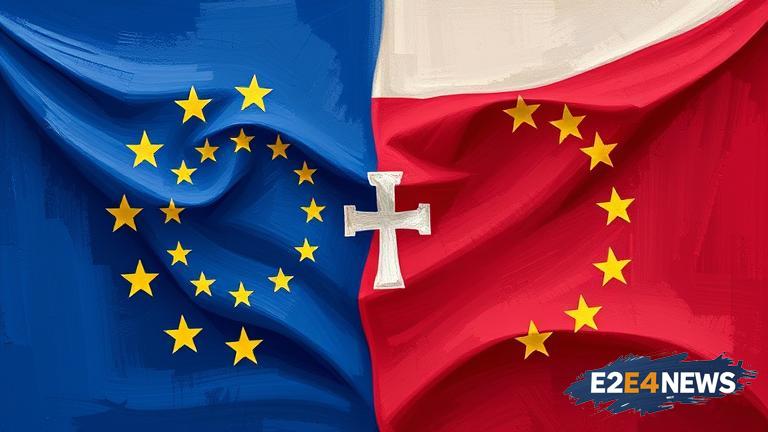The European Union has been engaging in discussions with Georgia, emphasizing the need for the country to adhere to democratic principles and respect human rights. Despite the strong rhetoric, the EU’s actions have been more subdued, with a focus on maintaining a positive relationship with the Georgian government. This dichotomy has raised questions about the EU’s commitment to promoting democracy and human rights in the region. The EU has been a key player in supporting Georgia’s economic development and has provided significant financial assistance to the country. However, the EU’s soft approach has been criticized by some as being ineffective in promoting meaningful change in Georgia. The Georgian government has been accused of suppressing opposition and restricting media freedom, prompting concerns about the country’s democratic trajectory. The EU has responded to these concerns by issuing statements and holding meetings with Georgian officials, but concrete actions have been limited. Some have argued that the EU’s soft approach is driven by a desire to maintain good relations with Georgia and avoid antagonizing the country’s government. Others have suggested that the EU’s approach is influenced by geopolitical considerations, including the need to counterbalance Russian influence in the region. The EU’s approach to Georgia has also been shaped by the country’s strategic location, with Georgia serving as a key transit point for energy supplies and trade. Despite these complexities, the EU has a responsibility to promote democracy and human rights in Georgia, and its actions should be guided by a commitment to these values. The EU’s credibility as a promoter of democracy and human rights is at stake, and its approach to Georgia will be closely watched by other countries in the region. The Georgian government has made some progress in recent years, including the implementation of reforms aimed at strengthening the rule of law and promoting economic development. However, more needs to be done to address the country’s democratic shortcomings and ensure that the government is accountable to its citizens. The EU should continue to engage with Georgia, but its approach should be guided by a clear commitment to promoting democracy and human rights. This will require a more nuanced approach, one that balances the need for positive relations with the need for concrete actions to promote meaningful change. The EU’s approach to Georgia will have implications for the broader region, and it is essential that the EU gets it right. By promoting democracy and human rights in Georgia, the EU can help to promote stability and prosperity in the region, and demonstrate its commitment to these values.
